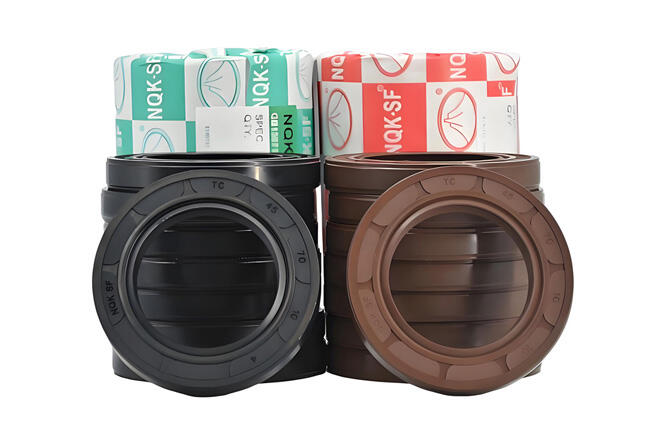NQKSF TC oil seals is a rubber coated skeleton oil seal with a double lip structure. It is mainly used to isolate lubricating parts and output parts in mechanical transmission systems to prevent lubricating oil leakage and has dust proof function.
TC oil seals function
Oil and dust prevention: The main lip prevents lubricating oil leakage, and the auxiliary lip blocks external dust from entering, which is suitable for dusty environments.
Isolation of lubricating parts: Isolate the parts that need to be lubricated (such as bearings) from the output parts (such as shafts) in the transmission system to ensure the stable operation of the lubrication system.
TC seal structural and material characteristics
Double lip structure (main lip + auxiliary lip) and metal skeleton enhance sealing performance. The skeleton is similar to the steel bars in concrete, maintaining shape and tension.
Built-in spring provides continuous self-tightening force to adapt to high pressure or corrosive environment.
Rubber materials include nitrile rubber (NBR, low-cost oil resistance), fluororubber (FKM, high temperature corrosion resistance), etc. Fluororubber or perfluoroether (FFKM, temperature resistance up to 320℃) should be used in high temperature environment (150℃).
TC oil seals are the most commonly used oil seal types in industry, suitable for environments with pressure ≤0.3bar, such as automotive transmission systems, pumps and valves and other rotating equipment.
For more sealing solutions, please feel free to consult our sealing experts.

 Hot News
Hot News